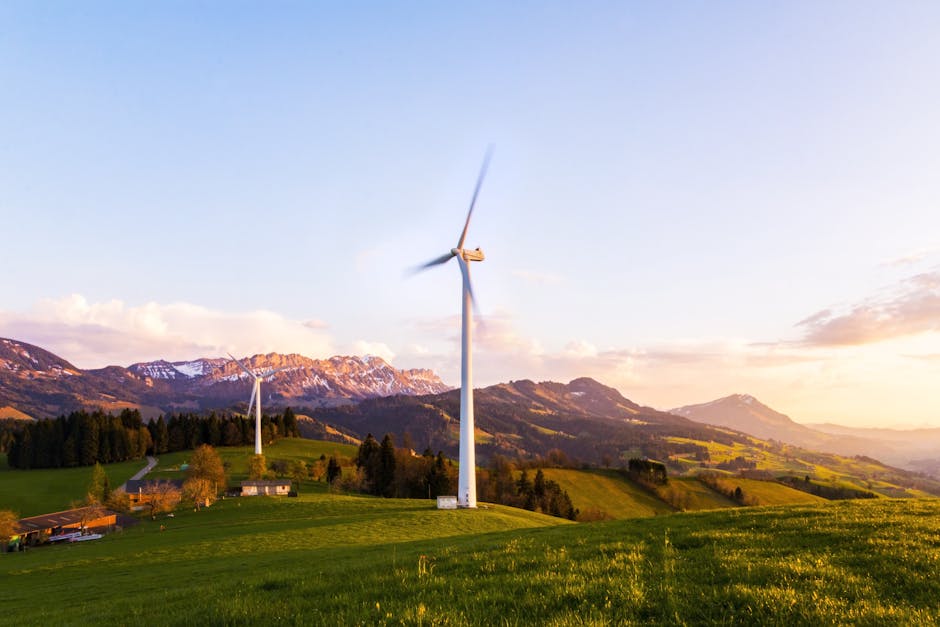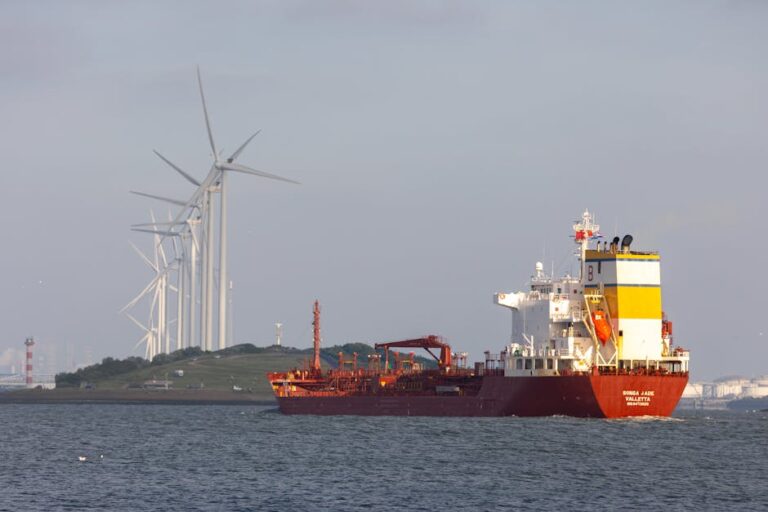Former President Donald Trump has initiated an investigation into wind turbine imports. This action could potentially lead to new tariffs impacting the clean energy sector.
The Commerce Department has launched a Section 201 investigation. This probe examines whether imports of bifacial solar panels and wind turbine components are harming domestic manufacturing. The investigation was requested by a coalition of U.S. solar manufacturers.
Trump, during his presidency, frequently criticized renewable energy sources. He often championed fossil fuels, including coal and natural gas. His administration also imposed tariffs on steel and aluminum.
These tariffs aimed to protect American industries. However, they sometimes led to retaliatory measures from other countries. The current investigation echoes some of those past trade enforcement actions.
The administration cited concerns about fair competition. They also pointed to potential national security implications for critical energy infrastructure. This broad scope could bring a wide range of products under scrutiny.
The investigation specifically targets bifacial solar panels. It also includes components used in wind turbine manufacturing. These are key technologies in the global transition to clean energy.
Trade Probe Begins
The Commerce Department stated the investigation is routine. It follows a petition filed by U.S. solar manufacturers. The petition argues that a surge in imports is injuring the domestic industry.
The agency will analyze import data and market conditions. It will determine if increased imports are a substantial cause of serious injury. This process typically takes several months to complete.
The investigation will look at imports from various countries. However, the primary focus is often on those with significant export capacities. China is a major player in both solar and wind manufacturing.
Analysts suggest the probe could set a precedent. It might signal a tougher stance on imports for other green technologies. This could create uncertainty for companies relying on global supply chains.
The outcome could significantly affect pricing. Tariffs would likely increase the cost of wind energy projects. This might slow the pace of renewable energy deployment.
Domestic manufacturers argue for protection. They claim they cannot compete with lower-cost foreign production. They believe tariffs are necessary for their survival.
However, many renewable energy developers disagree. They point to the importance of affordable components. They warn that tariffs could hinder growth.
Environmental groups have also expressed concerns. They worry that trade disputes could impede climate goals. The push for clean energy requires robust supply chains.
The investigation is expected to gather public comments. Industry stakeholders will have opportunities to submit evidence. Public hearings may also be scheduled.
The Commerce Department will submit its findings to the President. A preliminary determination is anticipated within months. The final report will offer recommendations.
Impact on Green Energy
The potential for tariffs casts a shadow over the sector. Companies that rely on imported components face significant risks. Investment decisions may be delayed or altered.
The Biden administration has made clean energy a priority. It aims to significantly expand renewable energy capacity. This investigation presents a challenge to those ambitions.
The outcome will depend on the investigation’s findings. It will also hinge on President Trump’s ultimate decision. He has the authority to implement tariffs based on recommendations.
The energy industry is closely watching developments. The potential for tariffs has already generated discussion. Many are preparing for various scenarios.
The investigation’s scope is broad. It could encompass more than just finished products. Key raw materials might also be examined.
This situation highlights a broader tension. It pits domestic manufacturing interests against the expansion of clean energy. Balancing these often competing priorities is a significant challenge.
“The global nature of renewable energy supply chains means that protectionist measures, while intended to bolster domestic industry, can inadvertently raise costs and slow the transition to cleaner energy sources worldwide.”
The results of this investigation could reshape trade policy. It might influence future trade disputes. The focus on clean energy technologies is noteworthy.
The administration is expected to consider economic impacts carefully. The effect on job creation in both manufacturing and installation is a key factor. The long-term implications for energy security are also relevant.
Stakeholders will likely advocate for their positions. Industry associations are preparing their responses. The process could be lengthy and complex.
The investigation’s timing is also significant. It comes as the U.S. aims to meet ambitious climate targets. Any disruption to the clean energy supply chain is unwelcome.
The administration faces pressure from multiple sides. Domestic producers seek relief. Renewable energy developers want predictable costs.
The president’s final decision will have wide-ranging consequences. It will affect energy prices and investment. It could also impact international trade relations.
The trade probe into wind turbines presents a significant challenge. It could alter the cost and availability of clean energy components. A preliminary report is expected within months.


